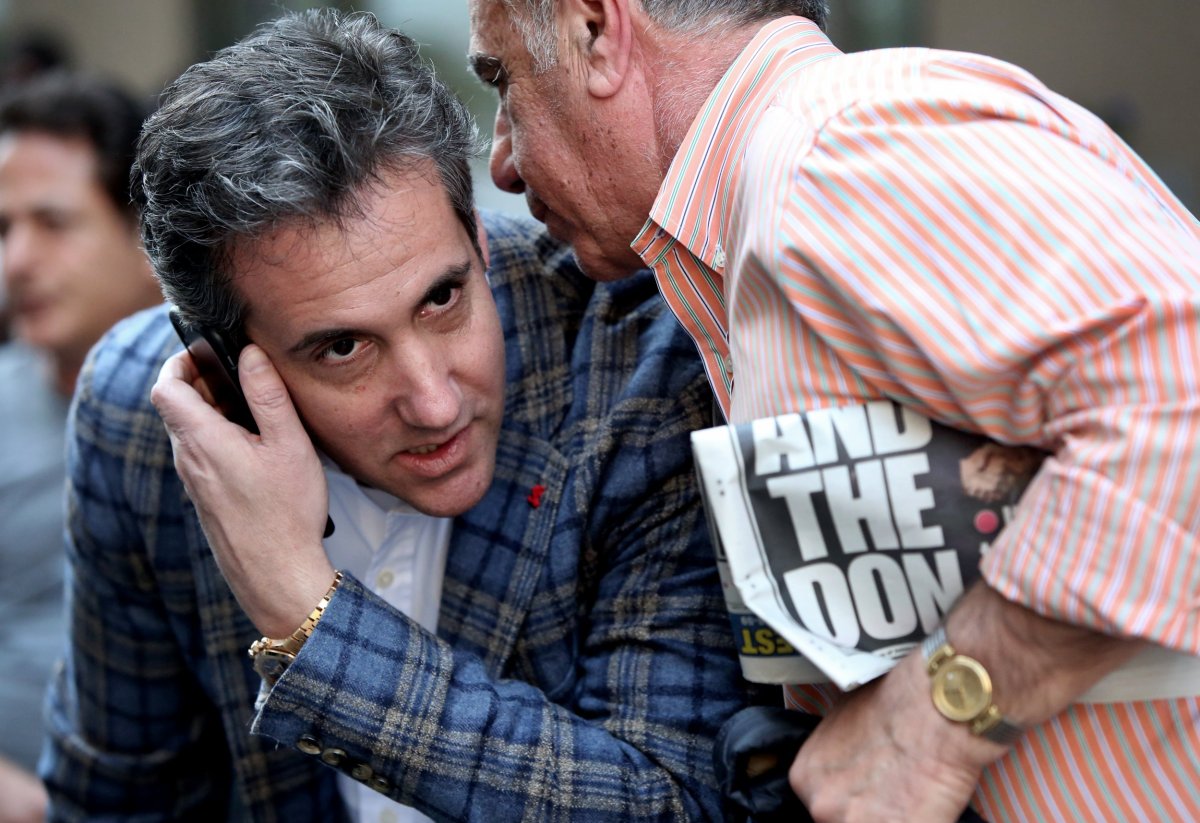In the ever-changing story of the president's alleged involvement with an adult film actress, there's a lot that doesn't add up. But one of the issues legal experts find most puzzling about President Donald Trump and Michael Cohen's response to Stormy Daniels's allegations—which Trump continues to deny—is this: Why would you make someone sign a nondisclosure agreement, and give them $130,000, if what they were saying was false?
New York lawyers familiar with all manner of nondisclosure agreements, or NDAs, said it was unusual for legal counsel to use one to silence false allegations. Standard practice involves sending the person spreading lies a cease-and-desist letter, and filing a defamation suit if he or she refused to stop.
"If someone makes a false statement about you, that's defamatory," Shaliz Sadig Romano, the co-managing attorney at New York City–based Romano Law, told Newsweek on Thursday. "You'd have an NDA to prevent someone from leaking truth."
Daniel R. Bright, an employment lawyer and partner at New York's Lichten & Bright, said it was highly "unusual" for a lawyer to award someone circulating lies money in order to stop.
"If someone makes up something untrue, people generally don't pay them money for a confidentiality agreement," Bright told Newsweek Thursday. "A lawyer would warn them not to say what they're saying and then threaten to sue them for defamation. That's normally how people respond to a public accusation they believe to be fictional."
That commentary came on the heels of an explosive Rudy Giuliani interview with Fox News. The newest addition to Trump's legal team told the station Wednesday that Trump reimbursed Cohen the $130,000 paid to Daniels, whose legal name is Stephanie Clifford, "over a period of several months." Giuliani maintained that Trump didn't know until recently what the reimbursement was for, and Cohen referred to it only as "expenses."
The payment came with an NDA asking Daniels to sign away her right to tell anyone about her alleged 2006 affair with the president, then just a real estate mogul and reality television star. Daniels has sought to extricate herself from the agreement with a civil suit, filed in February, arguing that the NDA was invalid because Trump never signed it.

The president denied having an affair with Daniels.
Whether or not Trump knew about the payment, Bright said he's "never had an experience where someone is agreeing to pay someone to keep quiet about something totally fictitious."
But Trump, the lawyers conceded, is no normal client. And few lawyers have ever had to advise a client in the weeks leading up to a presidential election.
"You might forgo a defamation suit because you don't want any publicity," Romano said. "To me, that's the only situation in which it makes sense."
Others said arguing defamation would have been particularly difficult for Trump, a self-professed womanizer and playboy who frequently made his sex life a matter of public record and would have little to gain by way of damages from Daniels.
"I don't think he'd ever be able to prove that her allegations injured him, given how he behaves and all of that," Davida Perry, a New York employment discrimination lawyer and managing partner at Schwartz Perry & Heller, told Newsweek. "Plus, he'd simply have to prove that her statements are false, and my guess would be that it would become a 'he said, she said' situation."
"Everyone remembers Trump's 'Best Sex I've Ever Had' cover for the New York Post," said Bright. "It would hardly defame his reputation to be accused of an adulterous affair. So it's only in the context of an impending election that the NDA and $130,000 payment make sense."
The timing of the payment right before the election, however, is an unavoidable one for the Trump team, which now faces questions of whether Cohen's payment violated the Federal Election Commission's campaign finance laws, which prohibit any campaign contributions exceeding $2,700. Because Cohen worked for the Trump Organization, the payment could also violate the FEC's laws banning corporate contributions to candidates, according to NPR. Finally, if Cohen's payment was thought to be a kind of loan to Trump—one that he'd eventually reimburse him for—Trump could still be in trouble for not reporting the reimbursements, which would be considered another in-kind contribution, to the FEC.
"The only possible violation there would be, was it a campaign finance violation," Giuliani said on Wednesday. "That was money that was paid by [Trump's] lawyer, the way I would do, out of his law firm funds...and the president reimbursed that over a period of several months."
Uncommon Knowledge
Newsweek is committed to challenging conventional wisdom and finding connections in the search for common ground.
Newsweek is committed to challenging conventional wisdom and finding connections in the search for common ground.
About the writer
Marie Solis is a politics writer at Newsweek focusing on women's issues. She's previously written for Mic, Teen Vogue, Bustle, ... Read more
To read how Newsweek uses AI as a newsroom tool, Click here.








